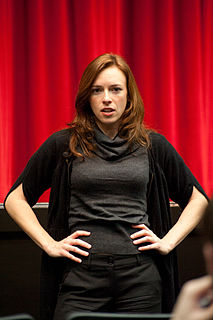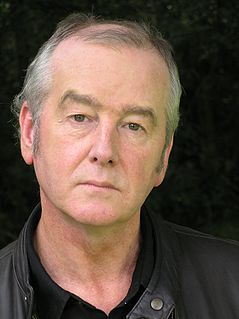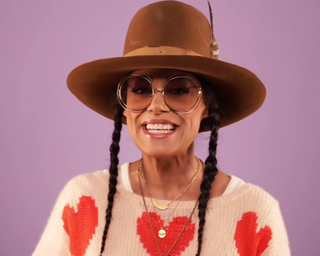A Quote by Charles de Lint
Our lives are stories, and the stories we have to give to each other are the most important. No one has a story too small and all are of equal stature. We each tell them in different ways, through different mediums—and if we care about each other, we'll take the time to listen.
Related Quotes
Remember on this one thing, said Badger. The stories people tell have a way of taking care of them. If stories come to you, care for them. And learn to give them away where they are needed. Sometimes a person needs a story more than food to stay alive. That is why we put these stories in each other's memories. This is how people care for themselves.
One of the remarkable qualities of the story is that it creates space. We can dwell in a story, walk around, find our own place. The story confronts but does not oppress; the story inspires but does not manipulate. The story invites us to an encounter, a dialogue, a mutual sharing. As long as we have stories to tell to each other there is hope. As long as we can remind each other of the lives of men and women in whom the love of God becomes manifest, there is reason to move forward to new land in which new stories are hidden.
When we haven't the time to listen to each other's stories we seek out experts to tell us how to live. The less time we spend together at the kitchen table, the more how-to books appear in the stores and on our bookshelves. But reading such books is a very different thing than listening to someone' s lived experience. Because we have stopped listening to each other we may even have forgotten how to listen, stopped learning how to recognize meaning and fill ourselves from the ordinary events of our lives. We have become solitary; readers and watchers rather than sharers and participants.
If we wish to know about a man, we ask 'what is his story--his real, inmost story?'--for each of us is a biography, a story. Each of us is a singular narrative, which is constructed, continually, unconsciously, by, through, and in us--through our perceptions, our feelings, our thoughts, our actions; and, not least, our discourse, our spoken narrations. Biologically, physiologically, we are not so different from each other; historically, as narratives--we are each of us unique.
Humans are kind of story-propagating creatures. If you think of how we spend our days, think of all the time you spend on entertainment. How much of your entertainment centers around stories? Most pieces of music tell stories. Even hanging out with your friends, you talk, you tell stories to each other. They're all stories. We live in stories.
I suspect that the most basic and powerful way to connect to another person is to listen. Just listen. Perhaps the most important thing we ever give each other is our attention And especially if it's given from the heart. When people are talking, there's no need to do anything but receive them. Just take them in. Listen to what they're saying. Care about it. Most times caring about it is even more important than understanding it. Most of us don't value ourselves or our love enough to know this.
I suppose the other thing too many forget is that we were all stories once, each and every one of us. And we remain stories. But too often we allow those stories to grow banal, or cruel or unconnected to each other.We allow the stories to continue, but they no longer have a heart. They no longer sustain us.
Friends never cheat on each other, or take advantage, or lie. Friends do not spy on one another, yet they have no secrets. Friends glory in each other's successes and are downcast by the failures. Friends minister to each other, nurse each other. Friends give to each other, worry about each other, stand always ready to help. Perfect friendship is rarely achieved, but at its height it is an ecstasy.
When you label somebody and put them in a box, then you put the lid on the box, and you just never look inside again. I think it's much more interesting for human beings to look at each other's stories and see each other. Really see each other and then see themselves through other people's stories. That's where you start to break down stereotypes.




































